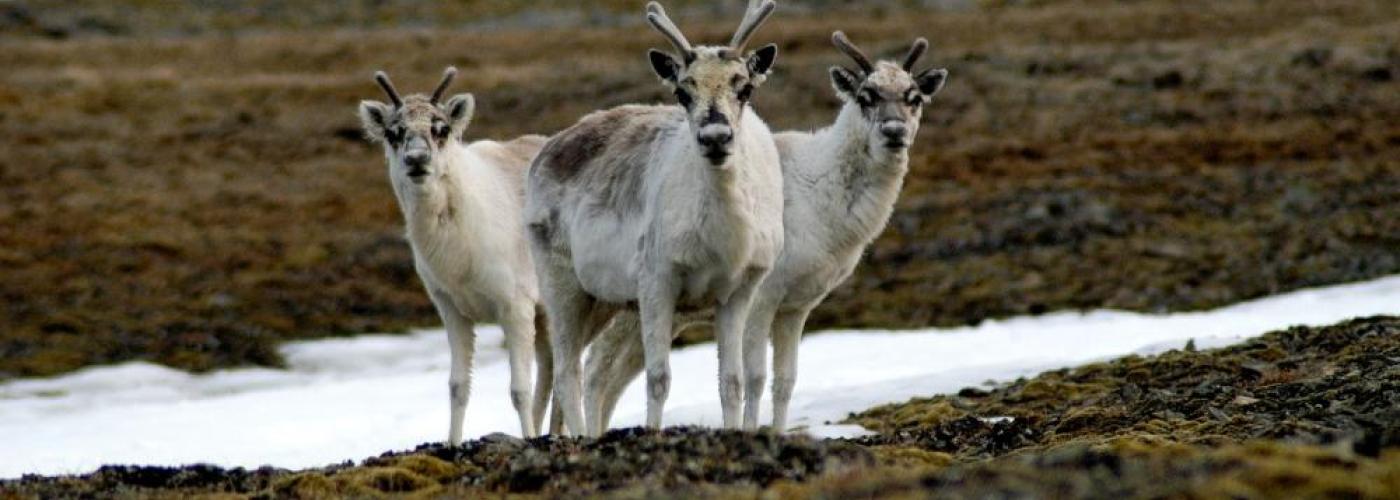The Northwest Territories (NWT) Species at Risk Committee (SARC) met from May 2-5, 2022, to assess the biological status of three NWT species. Peary caribou and boreal caribou were reassessed as required under the Species at Risk (NWT) Act. Peregrine falcon was assessed for the first time in the NWT. All assessments were based on the best available information from Indigenous and community knowledge, and scientific knowledge.
The Committee determined that while NWT populations of Peary and boreal caribou are relatively healthy, threats related to climate change (including more frequent and intense wildfires, extreme weather and unreliable sea ice conditions) warrant a precautionary approach to their assessment. Impacts of climate change on peregrine falcon in the NWT are uncertain and are likely to unfold gradually.
“We don’t know how climate change will unfold, or how it will affect caribou. People are deeply concerned about the future of living things on our landscape. The natural cycles are changing.”
- Leon Andrew, Chair, NWT Species at Risk Committee
SARC assessed the species as follows:
Peary caribou was reassessed as Threatened in the NWT. The species was previously assessed as Threatened in 2012.
This assessment reflects concerns from Indigenous knowledge holders about the uncertain future of this Arctic caribou species. Populations declined steeply between the 1960s and 90s. Although the species is showing signs of recovery, populations have yet to reach historic levels. The species is also prone to dramatic fluctuations, and may experience severe declines in the future. Threats include extreme weather, changing sea ice conditions, marine traffic, predation and competition for food.
Boreal caribou was reassessed as Threatened in the NWT. The species was previously assessed as Threatened in 2012.
This assessment reflects the sensitivity of this species to disturbance and habitat loss. Indigenous knowledge holders are concerned that although boreal caribou numbers are stable or increasing in some regions, the species has suffered population declines in the past and is at risk of future decline due to the effects of climate change (e.g. wildfires) and resource development.
Peregrine falcon was assessed for the first time in the NWT, and determined to be Not at Risk.
This assessment reflects a stable NWT population, declines in pesticide levels, as well as the proven resilience and adaptability of the species in the face of multiple threats.
SARC will present the assessments to the Conference of Management Authorities (CMA) later this month. The CMA will engage with communities and decide whether to extend the terms of Peary caribou and boreal caribou as Threatened species on the NWT List of Species at Risk for another 10 years.
Quick Facts:
- The Species at Risk (NWT) Act provides a process and tools to identify, protect and recover species at risk in the Northwest Territories.
- The NWT Species at Risk Committee (SARC) is established by the Species at Risk (NWT) Act as an independent committee of experts responsible for assessing the biological status of species at risk in the NWT.
- Assessments are based on approved species status reports containing the best available information from both Indigenous and community knowledge (ICK) and scientific knowledge (SK) sources.
- Taking a precautionary approach means a lack of certainty should not be used as a reason to delay measures to prevent the reduction or loss of a species at risk.
Details of the 2022 assessments can be found here:
